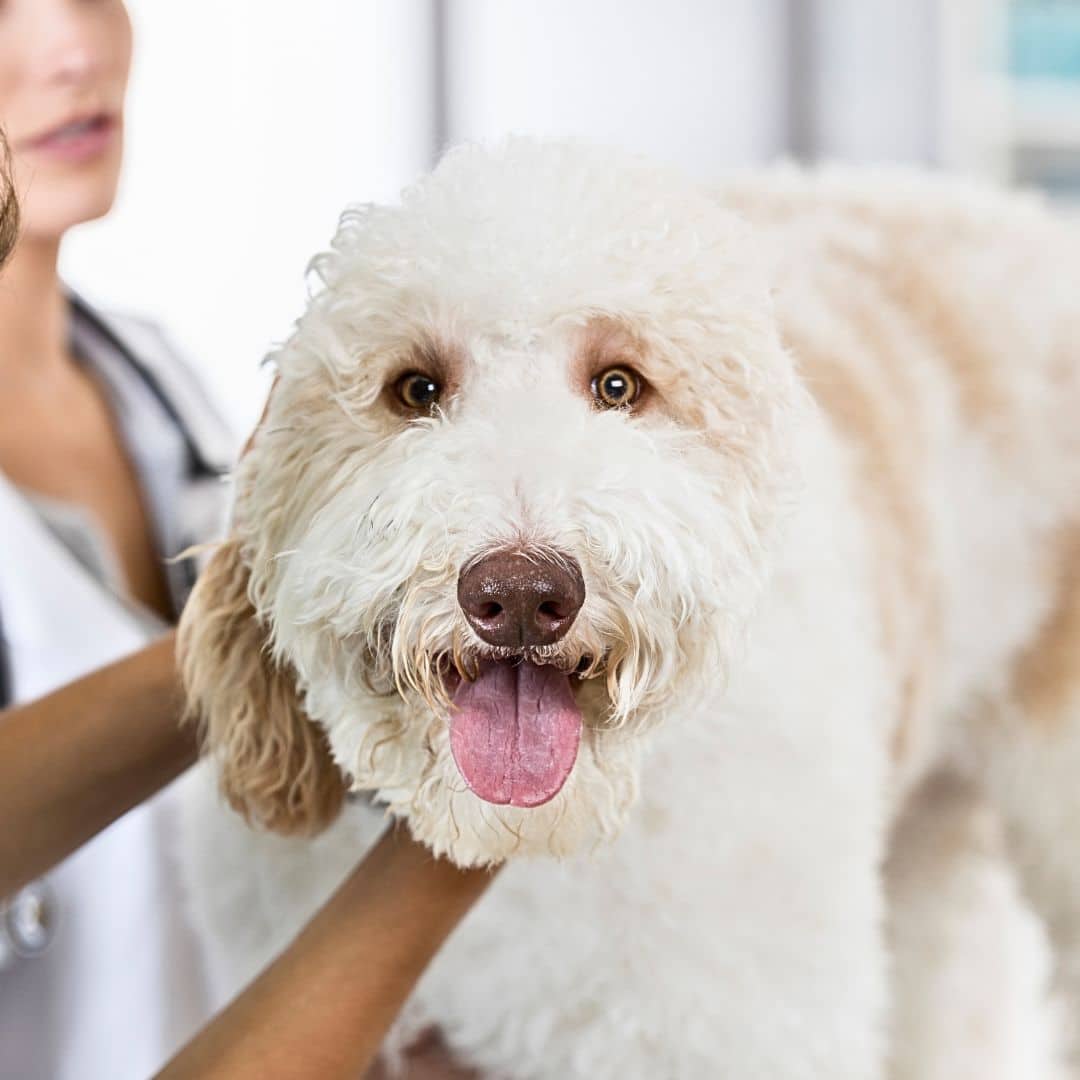The Health Benefits of Dog Ownership: How Having a Dog Can Improve Your Well-being
The bond between humans and dogs is remarkable, extending beyond companionship to positively impact our health and well-being. Numerous studies have highlighted the connection between dog ownership and improved physical and mental health, underscoring the benefits of having a furry friend by your side.
Increasing physical activity is one of the most apparent health benefits of owning a dog.
Daily Exercise
Dogs require regular exercise, whether going for walks, playing fetch, or engaging in other activities. As a result, dog owners are more likely to meet recommended daily exercise guidelines, leading to improved cardiovascular health and weight management. Engaging in more physical activity can have the added benefit of reducing chronic conditions like obesity, diabetes, and heart disease.
Mood Boosters
In addition to keeping us physically fit, dogs profoundly impact our mental well-being. The presence of a dog has been shown to reduce stress levels and promote relaxation. Interacting with dogs releases endorphins in our bodies, which are natural mood boosters that help alleviate symptoms of anxiety and depression. Furthermore, dogs’ unconditional love and companionship can significantly improve our emotional state.
Emotional Support
Research has also demonstrated that dog ownership can have specific health benefits for certain populations. Research indicates that children raised with dogs are less likely to develop allergies and asthma. Dogs can also provide emotional support and assistance to individuals with disabilities or chronic illnesses, promoting independence and improving their quality of life.
Moreover, having a dog also encourages social interaction. Owning a dog increases socialization with other dog owners during walks or park visits. This social interaction fosters a sense of community and connectedness, reducing feelings of loneliness and isolation.
Mental Health
It is important to note that the health benefits associated with dog ownership may vary from person to person. Factors such as age, lifestyle, and individual circumstances can influence the extent of these benefits. However, owning a dog can positively impact physical and mental health.
Dog Ownership for Children’s Health & Development
Many benefits are associated with children growing up with dogs as their furry companions. Not only do dogs make wonderful pets, but they also positively impact a child’s health and development. Let’s delve into some of these exciting benefits.
1. Dog Ownership helps Child Development
Owning a dog can significantly improve a child’s overall development. Dogs provide companionship, which fosters emotional well-being and helps children develop social skills. As kids interact with their four-legged friends, they learn important life lessons such as responsibility, empathy, and patience. Caring for a dog requires feeding, grooming, and walking, instilling a sense of accountability in children from an early age.
2. Boosting the Immune System
Unlike popular belief, dog owners can strengthen a child’s immune system. Studies suggest that children who grow up around dogs tend to have fewer allergies and respiratory problems compared to those who don’t have pets. Regular exposure to the natural environment and the microbes found in dogs may help develop a stronger immune system in children.
3. Assistance for Disabilities and Autism
Dogs can play a vital role in assisting children with disabilities or autism. Trained therapy dogs offer emotional support and can help alleviate anxiety and stress in these children. Furthermore, interacting with dogs can enhance communication skills and promote social interaction for children on the autism spectrum.
4. Physical Activity
Dogs are affectionate creatures that encourage physical activity among children. Whether playing fetch or going for walks, having a dog as a companion motivates kids to exercise regularly. This active lifestyle helps combat sedentary behaviour and promotes healthy growth and development in children.
5. Emotional Well-being
Dogs have an uncanny ability to offer unconditional love and support, greatly benefiting children’s emotional well-being. Research shows that dogs can reduce stress and promote relaxation. The presence of a loyal and non-judgmental friend like a dog can help children cope with emotional challenges and build resilience.
How does owning a dog contribute to better physical health?
Owning a dog goes beyond companionship and unconditional love; it can also significantly impact our physical health. Studies have consistently shown that owning a dog can positively impact physical well-being. One of the most obvious ways that owning a dog contributes to better physical fitness is through exercise. Dogs require regular walks and playtime, encouraging their owners to be more active. Whether it’s a stroll around the neighbourhood or a game of fetch in the park, these activities provide ample opportunities for exercise.
Cardiovascular Health
Walking a dog, in particular, offers numerous benefits. It not only helps to maintain a healthy weight but also improves cardiovascular fitness. Regular walking with your furry friend reduces the risk of heart disease, lowering blood pressure and cholesterol levels. Furthermore, owning a dog promotes consistency in exercise routines. Unlike gym memberships that often go unused, dogs rely on their owners for daily physical activity. This responsibility motivates individuals to prioritize regular exercise and maintain an active lifestyle.
In addition to exercise, studies have shown that dog ownership has other positive effects on physical health. Interacting with dogs has been found to reduce stress levels and lower cortisol (the stress hormone) production in the body. Improving mental and physiological health can be achieved through this.
Can owning a dog help improve mental well-being?
Absolutely! Owning a dog can have a significant positive impact on your mental well-being. Studies show that interacting with dogs helps reduce stress, anxiety, and depression. The unconditional love and companionship they provide can be incredibly comforting and uplifting.
Dogs are known to be great companions, offering support and a listening ear without judgment. They can help loneliness and isolation by providing constant companionship and a sense of purpose. Caring for a dog also promotes routine and structure, benefiting individuals struggling with mental health challenges.
Emotional Support
Furthermore, dogs have an innate ability to sense emotions and provide emotional support. They can offer comfort during distress or anxiety and act as a source of emotional stability.
It’s important to note that owning a dog is a significant responsibility that requires time, effort, and financial commitment. However, the numerous mental health benefits that come with it make it a rewarding experience for many individuals.
Do certain breeds offer more health benefits than others?
Regarding the health benefits provided by different dog breeds, it’s important to remember that every dog is unique and individual characteristics can vary within a species. However, certain factors should be considered when looking for a dog breed that suits your needs.
When it comes to finding a breed suitable for both adults and children, Labradoodles can indeed be a wonderful choice. Labradoodles are a crossbreed between Labrador Retrievers and Poodles, combining the intelligence and low-shedding coat of a Poodle with the friendly and sociable nature of a Labrador Retriever. They are often known for being great companions for adults and children.
While certain breeds may have characteristics that make them more suitable for specific needs or lifestyles, it’s important to remember that each dog is an individual. Temperament, training, and socialization also play significant roles in a dog’s behaviour and compatibility with different environments.
What precautions should be taken to ensure the owner’s and the dog’s well-being?
Ensuring the well-being of both the owner and their furry companion requires taking certain precautions and safety measures. Here are some suggestions to help maintain a healthy and happy environment for both you and your dog:
1. Regular Veterinary Check-ups
Schedule routine visits with a trusted veterinarian to monitor your dog’s health and address potential issues early on. These check-ups will help maintain your dog’s overall well-being and ensure timely vaccinations, preventive treatments, and necessary medical care.
2. Balanced Diet
A well-balanced, nutritious diet is crucial for your dog’s health. Consult your vet to determine the appropriate type and amount of food that meets your dog’s dietary needs. Remember always to provide fresh water to keep them hydrated.
3. Exercise and Mental Stimulation
Regular exercise is vital for a dog’s physical and mental well-being. Engage in activities like walks, runs, or playtime to keep them active and stimulated. Mental stimulation through puzzle toys or training sessions can also help prevent boredom and promote good behaviour.
4. Safe Environment
Ensure your living space is safe for your dog by removing potential hazards such as toxic plants, chemicals, or small objects that could be swallowed. Keep electrical cords away from children’s reach and secure any loose items that could cause choking hazards.
5. Socialization
Properly socialize your dog from an early age to help them interact positively with other animals, people, and various environments. I can reduce anxiety and behavioural problems while promoting a well-adjusted pet.
6. Identification and Microchipping
If your dog ever gets lost, it’s important to have proper identification tags with updated contact information on their collar. It is recommended to microchip your dog as a permanent means of identification, which can significantly enhance the likelihood of reuniting with them in case they get lost.
7. Grooming
Regular grooming practices such as brushing their coat, trimming nails, cleaning ears, and maintaining dental hygiene are all important aspects of responsible pet ownership. It helps prevent matting, infections, and other health issues.
8. Training and Boundaries
Clear boundaries and consistent training can promote good behaviour and a harmonious relationship between you and your dog. Use positive reinforcement techniques to reward desired behaviour rather than punishment. Remember, responsible pet ownership entails ensuring your dog’s physical health and emotional well-being. Following these precautions can create a safe and nurturing environment that benefits you and your furry friend.
Conclusion: Embrace the Joyful Journey of Dog Ownership for Your Health & Happiness!
The connection between dog ownership and health is undeniable. Dogs offer companionship, encourage physical activity, reduce stress, and promote social interaction. Whether you’re a lifelong dog lover or considering bringing a furry friend into your home, rest assured that the health benefits of having a dog are well worth it. Dog ownership offers a multitude of benefits for children’s health and development. From fostering responsibility and empathy to boosting the immune system and assisting those with disabilities or autism, dogs play a significant role in enhancing various aspects of a child’s life. Considering these advantages, it’s clear that owning a dog can be an enriching experience for both children and their families.










